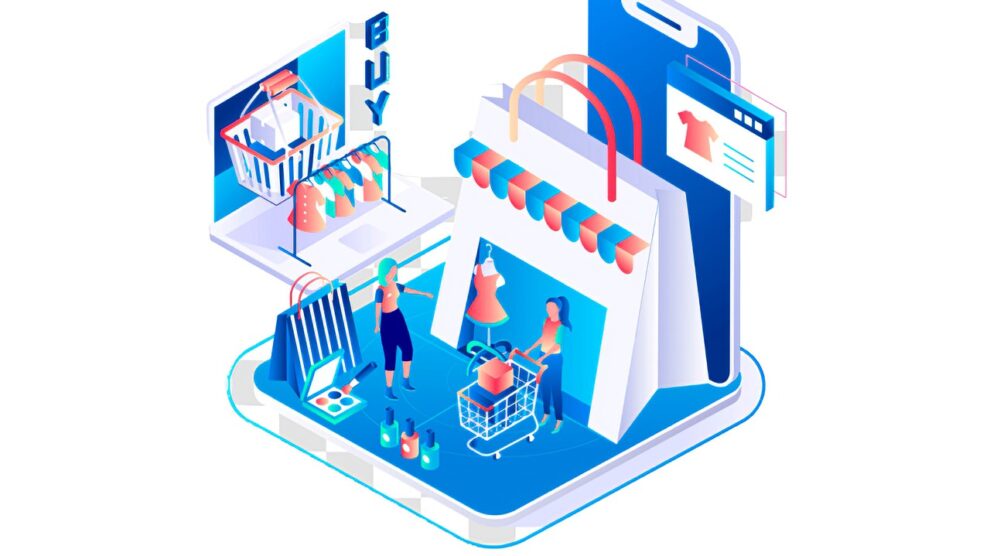The E-commerce industry is constantly evolving, with emerging trends in e-business and consumer behavior impacting the industry greatly. Technology has played and still plays a huge role in how the industry has adapted to these changes in consumer behavior and trend. Many businesses have embraced various emerging e-commerce technology trends to give their customers a seamless shopping experience while boosting business management strategies and processes and staying competitive amidst the stiff competition in the industry.
Some technological advancements include options such as order status, shipment tracking, access to secure payment, customization/personalization, mobile and web platforms, etc. In addition to these, new technologies keep emerging and thus, continue to shape the face of the e-commerce industry, making the future of e-commerce technology very bright. The role of technology in e-commerce growth is immense. However, I have selected five major ones for discussion in this article. So, let’s dive in.
E-commerce Personalization
Online shoppers prefer a more personalized interaction with online platforms to enable them to make decisions faster and easier. AI-powered product recommendations and customer services such as chatbots and online assistants serve as a guide or store assistant, assisting them through your website and deciding what to buy. In addition, artificial intelligence (AI) has made it possible to collect various customer information upon visiting your website or online store and using the information to create a more personalized online experience for the customer.
With AI technology, you can now keep track of customer preferences and use this data to design your website or online stores to suit these preferences and keep them more interested in your brand. Also, statistics have shown that online personalization yields more revenue for businesses that embrace it, with an increase in revenue of 10% and more for businesses that use basic personalization tools.
Thus, with this technological advancement, the e-commerce sector is set to face even more growth and evolution in the coming years, and consumers can have the same shopping experience electronically as they would in physical stores.
Use of Mobile Platforms
The invention of smartphones is one of the greatest technological advancements of the 20th century and has made life easier for humans in various ways, including in the e-commerce industry. Smartphones have enabled customers to have easy access to the internet, giving them access to a wide variety of products, services, and information across various platforms and online stores. For instance, shipping from China to UAE cost can easily be gotten by simply opening the businesses’ mobile app.
Thus, e-commerce businesses must have a mobile platform where customers can access various information, products, and services on the go, at any time of the day, eliminating the boundaries of geographical location and time. Also, mobile platforms increase brand awareness. By having the apps on the screens of their smartphones or tablets, customers are always reminded of the brand.
In addition, mobile platforms keep the customer up to date with the latest offers, promos, and products available, making this tool a mobile shop in the customer’s pocket. Therefore, e-commerce businesses that seek to stand out and remain competitive in their various industries must possess a user-friendly e-commerce platform to foster relationships between the user and the brand and enhance user experience.
This technology is set to boost e-commerce activities even further in the coming years, with many businesses now possessing a mobile platform where they explore the diverse benefits of the technology.
Product Visualization
Technology has enhanced digital product perception over the years, thus improving the way customers view products on various platforms. With various visualization technology like Augmented reality (AR), 3D, and Virtual reality (VR), customers can now have an enhanced view of products from different perspectives, enabling them to know what the products will look like in the real world.
Augmented reality allows users to view digital images of products superimposed on the real-world view using their phones. Thus, enabling them to know what the products will look like in the real world. This is especially useful in industries such as fashion and decoration because it allows the customer to feel the product better before purchase.
Also, VR allows users to experience a product virtually before making a purchase. With these technological advancements, customers can now have a near real-world experience during their online shopping, helping them make more informed decisions on what to buy and creating a better shopping experience for them.
One of the effects of this is a greater willingness to shop online due to the same experience as with physical shopping. With various product visualization technology, the e-commerce industry is set to even break more grounds, as the line between e-commerce and physical stores gets thinner.
Artificial Intelligence (AI)
Being a technology that allows machines to think like humans, AI creates a unique shopping experience for the customer by providing automated services and personalized content. With AI technology, e-commerce businesses can collect customer information such as how they shop, what they shop for, their preferences, etc., and use this to create a personalized customer experience.
Also, AI makes it possible for customers to get recommendations on what to buy based on data collected from previous visits. Furthermore, this technology enables customers to get various support services and solutions to their issues and simplifies various employee tasks by automating them.
Other benefits of this technology include more efficient decision-making for e-commerce businesses and a more targeted customer search. AI tools provide businesses with valuable insights into various aspects of the business. These insights can then be used for various operations such as product pricing and customer assortment management. There are a whole lot of possibilities to explore with the integration of AI into e-commerce that will further enhance the growth and expansion of this industry in the coming years.
Secured Payment Services
A fast, convenient, and secure payment method is essential to e-commerce business success, with customers more likely to shop with brands that provide them with these requirements and demands. Modern technological advancement has made available various payment methods, ranging from credit cards to debit cards and other digital forms of payment.
The variety of payment options has made it easier for customers to make online payments from their smartphones or any other device. Also, payment options such as Apple Pay and Google wallet have increased the security levels for customer payment. This further increase customer confidence in e-commerce transactions, boosting electronic payments and contributing to more e-commerce growth rates.





